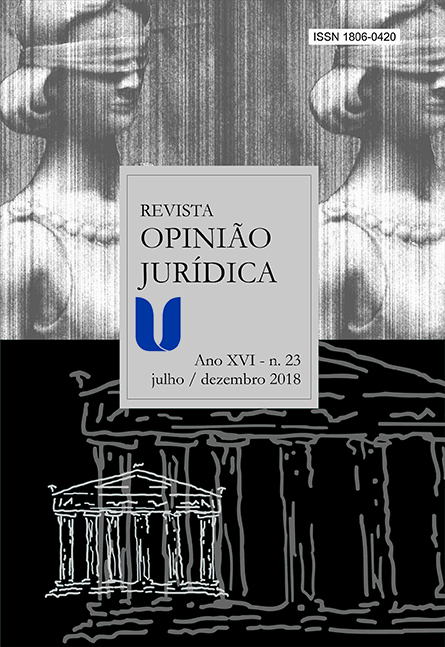O Princípio da Concentração da Matrícula e a Fraude à Execução: um Diálogo entre a Lei n. 13.097/2015 e o CPC/2015
DOI:
https://doi.org/10.12662/2447-6641oj.v16i23.p310-330.2018Keywords:
Fraude à execução, Lei n. 13.097/2015, Princípio da concentração da matrícula, Ciência da fraude, Constitucionalidade formalAbstract
Trata-se de um ensaio que visa a analisar a constitucionalidade formal dos arts. 54-56 da Lei n. 13.097/2015, considerando que a lei decorre da conversão de medida provisória que trata de tema de Direito material (e não processual). Visa, ainda, a demonstrar a compatibilidade desses artigos, que disciplinam a ciência da fraude como pressuposto necessário para a configuração de fraude à execução no contexto dos negócios imobiliários, com o regramento posterior do CPC/2015, que alcança, também, os negócios mobiliários. As leis em comento não se contrapõem e acabam sendo complementares entre si na regência da matéria.
Published
How to Cite
Issue
Section
License
CESSION OF COPYRIGHTS
The submission of articles to analysis for publication on Opinião Jurídica implies the author(s) transfers copyrights to Centro Universitário Christus – UNICHRISTUS for reproduction, publicizing, distribution, printing and publication, according to the Publication Norm 414R, Opin. Jur., Fortaleza, year 12, n. 16, p.1-414, Jan./Dec. 2014, costs to be bore by UNICHRISTUS, in whatever format or means that may or shall exist, in accordance to articles 49 and following of Federal Law 9.610/98.
1. In ceding copyrights, the author(s) agrees to do so in exclusivity, free of charge and for the totality of the work.
2. UNICHRISTUS may make the work, in its entirety or in parts, available for scholarly purposes, without altering its contents, except for small corrections that are deemed necessary.
3. The cession of copyrights is valid in all countries and for versions of the material in its original language or translated into a foreign language.
RESPONSIBILITY FOR THE CONTENT
By submitting an article, the author(s) declare to have sole responsibility for the content of the piece and is(are), therefore, responsible for any judicial or extrajudicial measures referring to it.
1. In case of joint authorship, all authors are considered collectively responsible, except when proved otherwise.


















